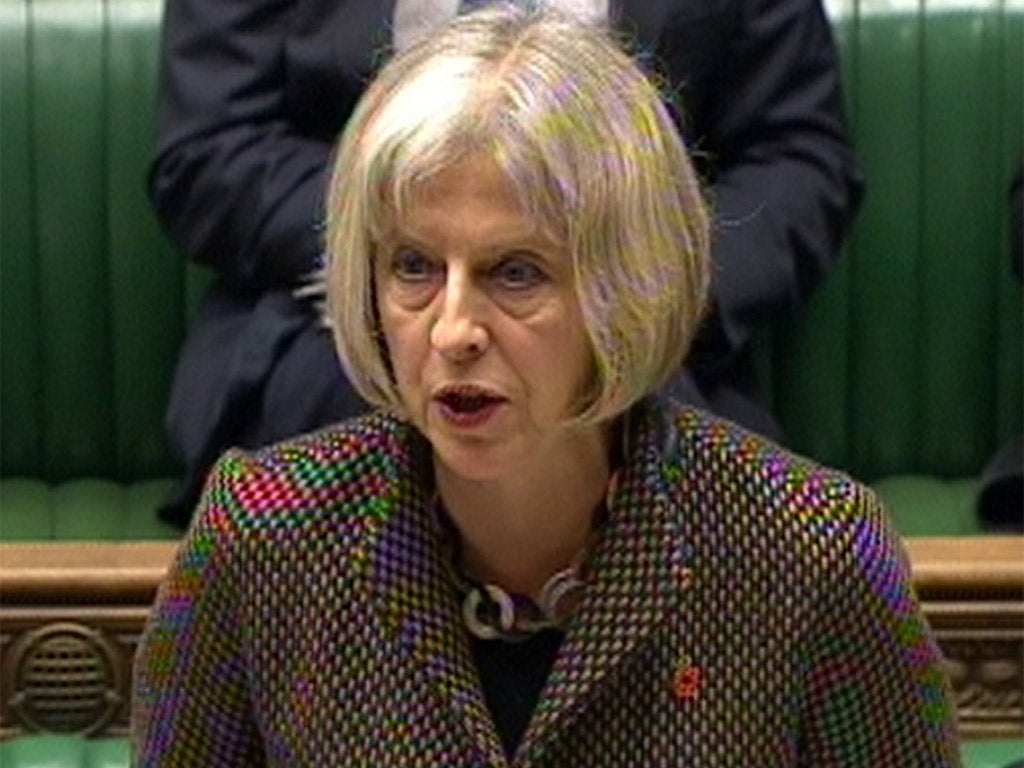European arrest warrant: What is it, who's to blame for last night's 'shambles', and what happens next?
Parliament has whipped itself into a frenzy over a simple EU measure

The House of Commons plunged into farcical scenes of chaos and confusion yesterday as MPs assembled for what should have been a straightforward European debate.
Instead backbenchers of all parties rounded on the Government for not letting them have their say on the most contentious issue – the European Arrest Warrant – and Labour attempted to torpedo the vote even though they are in favour of the it.
Confused? Many MPs certainly were. Here is our guide to the Commons shambles.
What was last night’s row about?
Whether Britain should opt back into 35 European Union policing and justice measures, including the arrest warrant. The measure is supported by a clear majority of MPs, but strongly opposed by a vociferous minority of Tories who were preparing to stage a major rebellion on the issue.
Shouldn’t that have been straightforward?
You might have thought so. But when MPs gathered for the debate they were told by John Bercow, the Speaker, that the motion before them only covered 11 of the 35 measures and did not include the arrest warrant.
How did MPs react?
Furiously, variously accusing ministers of chicanery, a “travesty of our parliamentary proceedings” and a “procedural absurdity”. Mr Bercow also delivered an extraordinary rebuke to ministers, lambasting them for a lack of “straight dealing”. It didn’t help their mood that Theresa May, the Home Secretary, and Chris Grayling, the Justice Secretary, reassured them that the debate could cover all 35 measures after all. Ms May explained that the Government would treat the vote as “indicative” of Parliament’s opinion on the warrant.
What happened next?
Labour’s Yvette Cooper attempted to halt the debate on the grounds that it did not adequately cover the warrant.
The move caught the Government by surprise and it avoided defeat by just nine votes – 251 ayes to 242 noes.
And then?
Ms Cooper, the shadow Home Secretary, then delved into the Commons rulebook to force a vote on putting off the debate to a later date, by which she meant the next day.
The Tories launched a desperate attempt to avoid defeat. Ms May embarked on a filibustering speech to give the party’s whips time to order MPs back to the Commons.
Those summoned back included David Cameron dressed in white tie after addressing the Mansion House dinner.
The Government won by 43 votes.
A quirk of parliamentary rules meant that MPs had then to go straight on to an early vote on the main business, which delivered an overwhelming majority in favour of adopting the 11 measures.
Is that it?
Not quite. The Government now faces a legal challenge over the arrest warrant. And Labour has announced it will stage a debate next week on the warrant.
Subscribe to Independent Premium to bookmark this article
Want to bookmark your favourite articles and stories to read or reference later? Start your Independent Premium subscription today.

Join our commenting forum
Join thought-provoking conversations, follow other Independent readers and see their replies